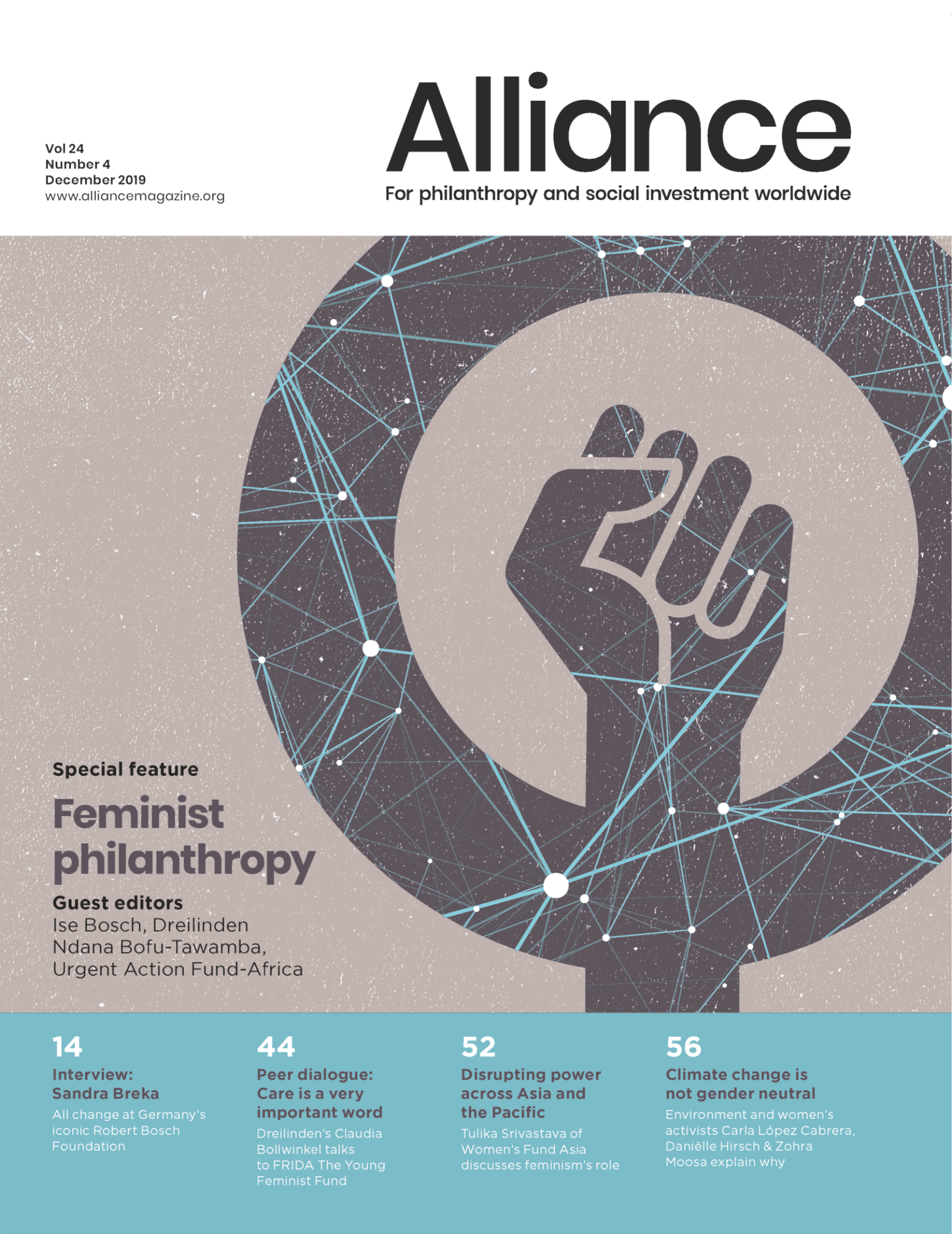I read the latest Alliance issue on human rights philanthropy (June 2019) with great interest. In their lead article, the guest editors make the point that a key role for philanthropy is to ‘keep the human rights movement alive’ by – among other things – ‘bringing out the connections between challenges people face in their everyday lives and the tools the human rights framework provides’, particularly for economic and social rights.
My own view is that the focus should lie elsewhere — not on how human rights abstractions can be made relevant to people’s lives. Rather, the starting point should be people and where they are likely to turn to for support when they need it.
Going to a nearby NGO with a long acronym that includes the words ‘human rights’ is less and less attractive. That might be partly a communications problem, but I think it’s more structural than that: it’s a problem of NGO priorities, strategies and tactics. The key question for me is how can human rights NGOs become more embedded in their communities and less creatures of an international system under pressure that might not be the one singular solution to all problems anyway?
Ed Rekosh
Co-founder, Rights CoLab





Comments (0)